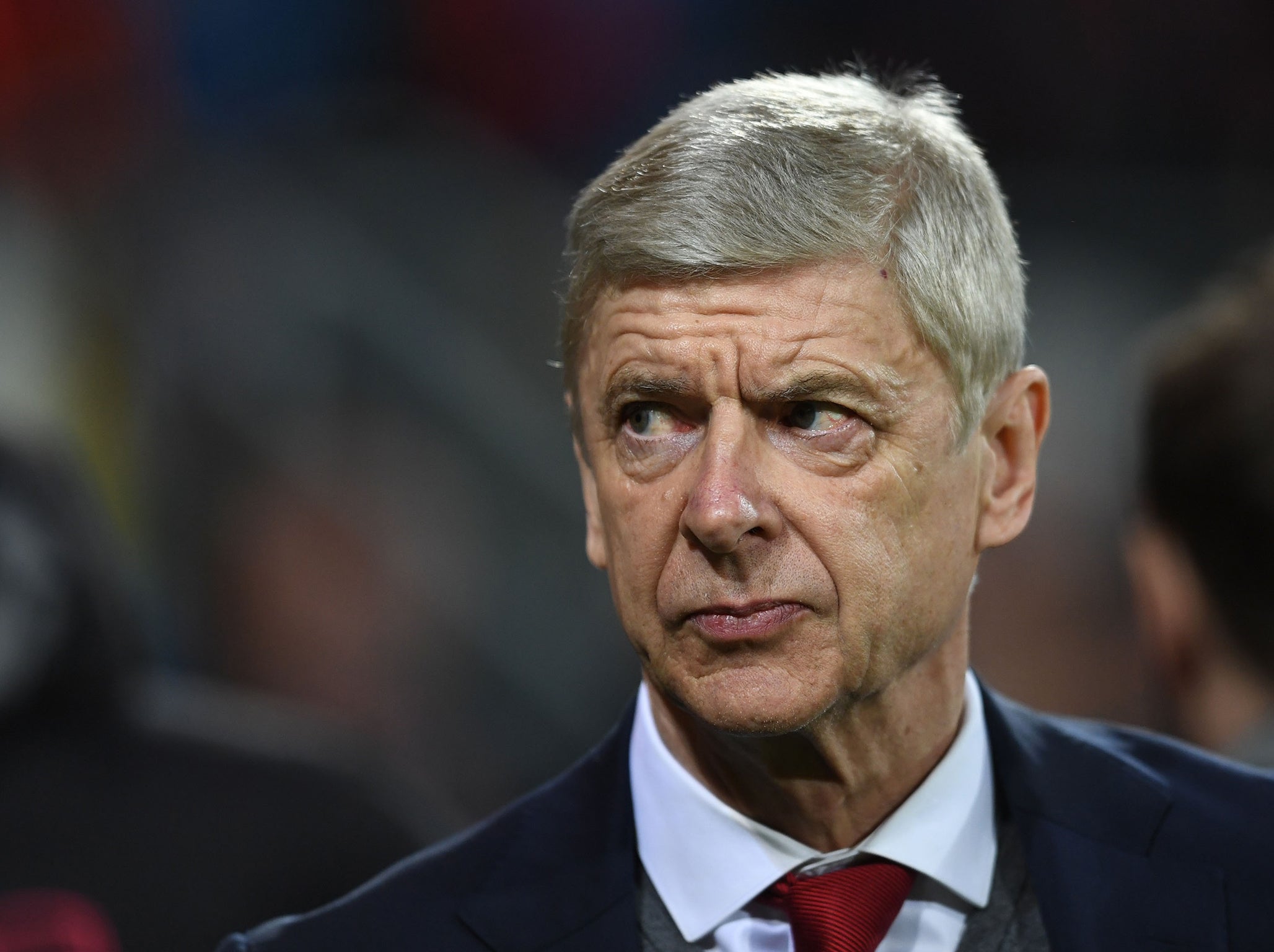The glaring fault that Tesco and Arsene Wenger have in common
As in sport, the trick at the very top of business is to know when to leave at just the right moment

The football on TV last Sunday was too painful to watch. Not the game itself, between Brighton and Arsenal, but the slumped figure of Arsene Wenger.
The manager’s face, as his Gunners team succumbed to their third defeat in a week, and this time against Brighton, a small club compared to the mighty Arsenal, was etched in disappointment. His agony was not helped by the braying from the Arsenal supporters shouting for him to go, while the Brighton fans – in common with most opposition supporters this season – responded with the ironic chant, “Arsene Wenger – we want you to stay.”
Wenger, 68 has been manager since October 1996. He’s the longest-serving manager in the club’s history, and also the most successful, winning the Premier League and FA Cup double twice, as well as a host of other honours.
But in recent seasons the trophies, at least the most prestigious domestic one of the league title, have ceased to accumulate. More to the point, Arsenal failed to gain qualification to Europe’s Champions League, the standard, increasingly, by which the major teams are judged.
He has stayed too long, has Arsene. He was brilliant in his day, challenging and changing the culture of English football, introducing new techniques and methods, setting a higher, transformative bar for quality and meticulousness of approach. But for anyone familiar with some of our biggest corporate boardrooms, his plight and that of Arsenal has a familiar ring.
As in sport, the trick at the very top of business is to know when to go. From 2005 to 2010, Management Today magazine’s “Most Admired” ranking was dominated by one company and one man. Year after year, Tesco and its then chief executive, Sir Terry Leahy, crucified the opposition, constantly heading the categories that made up the survey, and claiming the overall top slot, with Leahy repeatedly winning the coveted Most Admired Business Leader prize.
Then, suddenly, Tesco stopped winning. In 2010, it came 41st, the following year 171st. These particular awards mattered because they were judged by a company’s peers. And these industry insiders, close rivals, had seen, and sensed, something about Tesco and Leahy. They stopped admiring the company and its redoubtable boss.
Eventually, when Philip Clarke succeeded Leahy, he found a company in disarray. It had ploughed a fortune and considerable management effort into launching in the US, via its Fresh & Easy chain. In this country, its aggressive, expansionist policy had seen it reach a dead end in terms of adding new stores and sales capacity. Many of its senior executives, those close to Leahy, had been in their jobs too long, and the top tiers needed refreshing. Crucially, Tesco had begun to lose the trust of its customers and had failed to respond with its usual alacrity to the threat from competitors – notably Aldi and Lidl at the budget end, and Sainsbury’s and Waitrose at the high end.
Clarke duly had to disclose a slump in profits, and he accompanied the news with phrases such as “Tesco has to get back to where people want it to be” and “we need to be more relevant to our customers’ wishes”. This was unheard of self-flagellation for Tesco. The implication was clear: Clarke had inherited a mess.
Down the years, the longer the boss remains, the more the organisation is cast in their image. It’s their way or the highway, their tastes that dominate, their thinking that rules.
The same happened at BP, when Lord Browne clung on, and, likewise in politics, at Number 10, first with Margaret Thatcher, then with Tony Blair.
The person that follows has the unenviable task of inheriting an operation that has been managed according to one person’s taste, that individual’s likes and dislikes, and their idiosyncracies, for too long. Trying to remould the system, when all the people charged with helping run it are themselves used to the former boss, is especially difficult.
Clarke discovered so at Tesco. In football, too, there is a stark precedent. At Old Trafford, David Moyes succeeded Sir Alex Ferguson, only to find that the previous season’s Premier League champions were in poor shape, that the Manchester United squad required urgent strengthening. Moyes appeared to have been put in charge of a team in torpor. They were no longer playing with the same drive and hunger that so characterised much of the Ferguson era.
While the board is basking in the glory of the successful titan, they must be looking ahead, planning the succession, finding and grooming someone to takeover. If they do nothing, and rest on their laurels, content to watch the current boss keep winning, they will pay a heavy price. At some moment, they will stop triumphing, the tide will turn, and then it’s too late.
Beware the chieftain who has been in office for a lengthy period; who only needs to snap their fingers and it will be done; who refuses to countenance stepping down, to the extent that no successor is properly groomed; and when they do finally decide to go, the wheels are creaking. Quitting while ahead – it’s the best management attribute of all.
But beware, too, the board that allows this to occur. Wenger might be regarded by some as a villain; but equally to blame is the Arsenal board. They’ve allowed this situation to fester, they’ve not acted decisively. Arguably they are more culpable. It’s their task, after all, to look long term. The fans are right to feel let down, but not just by Arsene Wenger.
Chris Blackhurst is a former editor of The Independent, and executive director of C|T|F Partners, the campaigns and strategic communications advisory firm
Join our commenting forum
Join thought-provoking conversations, follow other Independent readers and see their replies
Comments